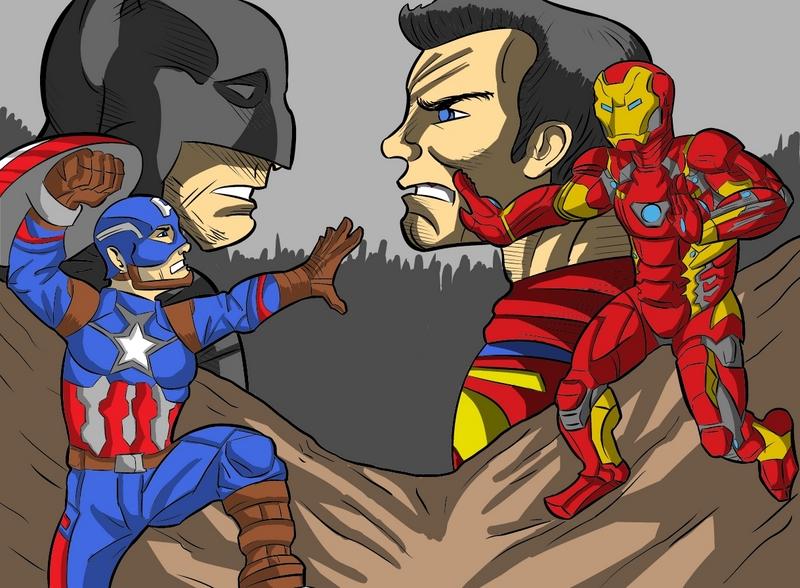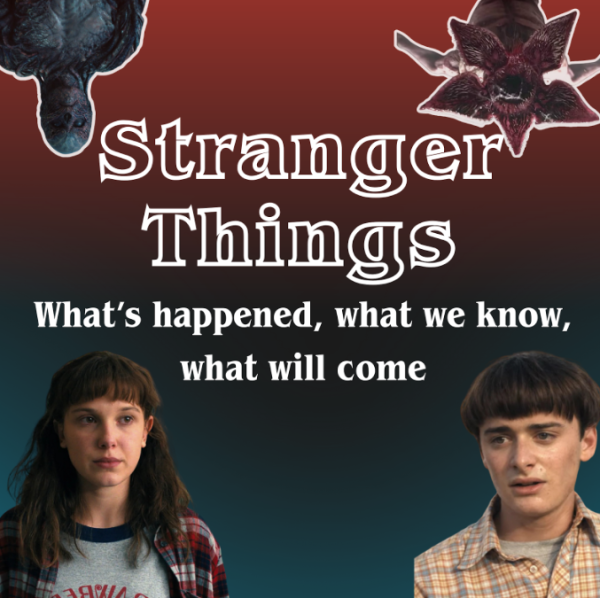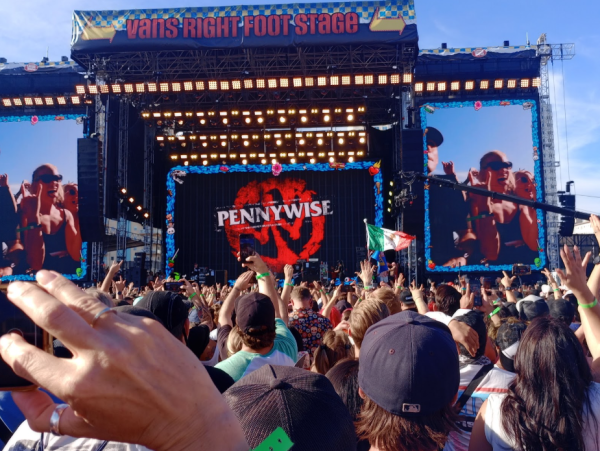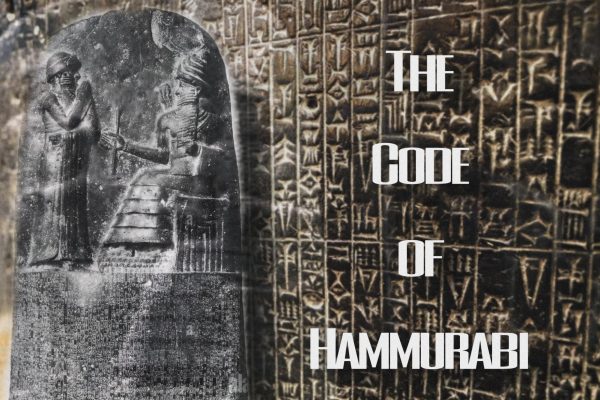Batman vs. Superman vs. Civil War – Oh My!
Picture by Cody Wilson
Captain America vs. Iron Man vs. Superman vs. Batman, oh my!
Conflict has been prevalent in superhero movies lately. In just a few months, two movies touting epic battles were released: Batman vs. Superman: Dawn of Justice and Captain America: Civil War. The differences between them, however, could not be more stark.
Batman vs. Superman is driven by Zack Snyder, the same director responsible for 2013’s Man of Steel, which was received with mixed responses by fans and critics alike. Man of Steel is widely viewed as overly dark and pessimistic, especially as Superman is forced to snap the main villain’s neck at the end, and the same tone permeates its sequel. Snyder sets the plot of Dawn of Justice in an extremely dark world, skimming over subjects like human trafficking and terrorism in the opening scenes of the movie. The movie even begins with the graphic deaths of Bruce Wayne’s parents.
More depressing is the fact that the lead characters themselves are products of the distressed world in which they live. Both heroes are driven by an abstract fear of what may occur if the other is allowed to live, so they viciously attack each other. Every blow of their fight further sends viewers into a detached misery that hangs in their minds even after they leave the movie. They are not motivated by hope to help their dark world but by their own survival. The most shocking scenes include Batman cold-bloodedly killing criminals, breaking his usual comic book oath.
Captain America: Civil War also attacks a dark subject matter: the intervention of the government to control superhero activity and the fight that ensues from it. Directors Joe and Anthony Russo, responsible for 2014’s intense Captain America: The Winter Soldier, subvert the depressing darkness of Snyder’s films while maintaining a sense of gravity. The world of Civil War is politically realistic and cynical in many ways. Heroes in both movies face public criticism for the damage their fights inflict. Unlike Snyder, the Russo Brothers easily balance seriousness with fun and banter between heroes (highlights are practically every line from Spider-Man and Ant-Man).
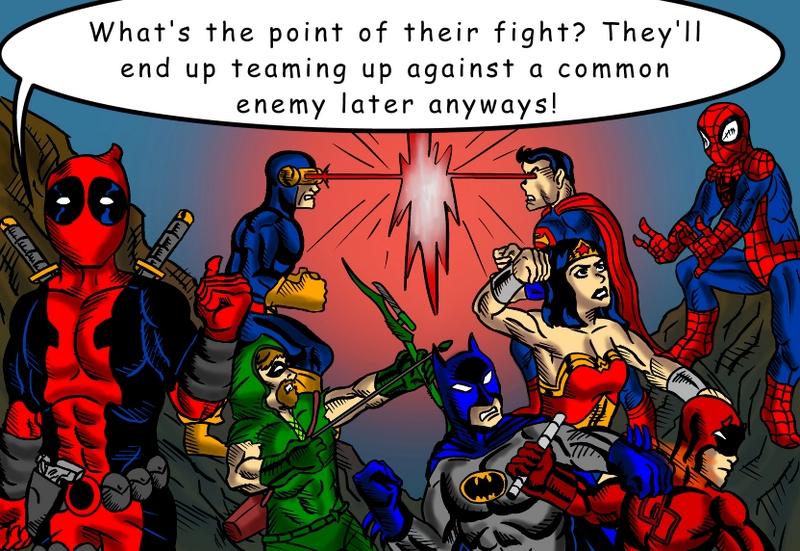
Deadpool has the right idea.
The heroes of Civil War face negative public opinion with hope and idealism. Captain America and his team fight against the Sokovia Accords, legislation which would force heroes to work with the government. They fight out of trust in the common sense and good judgement of their fellow heroes. Even by the end, the team supporting the Sokovia Accords (lead by Iron Man) comes to respect and admire Captain America’s loyalty to his cause. These characters’ just causes sharply contrast with the fear that drives the heroes of Dawn of Justice.
Another feature of Civil War is its celebration of superhero comics. The entire airport battle scene is a glorious homage to its source material, including everything from Ant-Man’s size transformation to Spider-Man’s witticisms. The many heroes fight uniquely, highlighting their diverse power sets from the comics. The Black Panther is agile, Vision uses his phasing power, Spider-Man swings and shoots webs, and Scarlet Witch utilizes her magic powers. The fights are also personal and emotional; friends like Hawkeye and Black Widow face each other, and the final clash between Captain America and Iron Man is raw and devastating. Watching the iconic characters clash on screen is like watching riveting comic book scenes come to life.
In contrast, Dawn of Justice distances itself from its source material. The characters themselves are nothing like their usual portrayals in the comics, and the movie utterly fails to capture the classic camaraderie between Batman and Superman. Clark Kent is cold and distant, while Bruce Wayne fails to show any emotion other than anger. Batman heartlessly murders villains! Similarly, Batman vs. Superman fails in its battle scenes. Batman’s fighting is clunky and lacks innovation while Superman resorts to simple punching instead of the use of his many powers. The characters’ motivations are poor, making the fight emotionally hollow, and the climax is utterly ridiculous: they end the brawl because their mothers have the same name.
In essence, Dawn of Justice and Civil War are as dissimilar as movies come despite the fact that both feature superhero skirmishes. The fights between Batman and Superman, and Iron Man and Captain America are overshadowed by an ongoing debate over superhero franchises. This provokes the pacifist response to end the fighting because every fan has their own preferences. To those peacemongers, I argue that there is no fun if our favorite superheroes can clash and we cannot!

Hello! My name is Cody Wilson, and I am the fearless Editor-in-Chief of the Ubiquity! Although I originally joined journalism to draw pictures and write...



